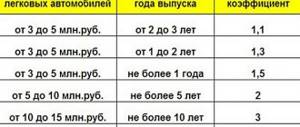No transport tax is paid on special agricultural transport
Based on Art. 357 of the Tax Code of the Russian Federation, payers of transport tax are persons who, in accordance with the legislation of the Russian Federation, are registered with vehicles recognized as an object of taxation under Art. 358 Tax Code of the Russian Federation.
The objects of transport tax are cars, motorcycles, scooters, buses and other self-propelled machines and mechanisms on pneumatic and caterpillar tracks, airplanes, helicopters, motor ships, yachts, sailing ships, boats, snowmobiles, motor sleighs, motor boats, jet skis, non-self-propelled (towed vessels) ) and other water and air vehicles registered in accordance with the established procedure in accordance with the legislation of the Russian Federation.
Various agricultural machinery is also subject to registration, which is why initially it is also subject to transport tax.
For your information:
According to paragraph . 1.4 Rules for state registration of tractors, self-propelled road-building and other machines and trailers for them by state supervision bodies over the technical condition of self-propelled machines and other types of equipment in the Russian Federation (gostekhnadzor), approved by the Ministry of Agriculture and Food of Russia on January 16, 1995, state registration, accounting in accordance with this The document is subject to, in particular:
- tractors (except walk-behind tractors);
- self-propelled road-building, reclamation, agricultural and other machines with an internal combustion engine displacement of more than 50 cubic meters. cm, not subject to registration in the divisions of the State Automobile Inspectorate of the Ministry of Internal Affairs;
- numbered units and trailers (semi-trailers) of these machines.
But some types of special agricultural machinery that are registered to agricultural producers, by virtue of paragraphs. 5 p. 2 art. 358 of the Tax Code of the Russian Federation are not recognized as subject to transport tax if they are used in agricultural work for the production of agricultural products.
Such special equipment includes tractors, self-propelled combines of all brands, special vehicles (milk tankers, livestock trucks, special vehicles for transporting poultry, machines for transporting and applying mineral fertilizers, veterinary care, technical maintenance.
Tax element
Vehicles that are subject to transport tax include the following:
- motor vehicles - motorcycles, cars, scooters, snowmobiles, buses, other self-propelled mechanisms and pneumatic or tracked vehicles;
- air vehicles - helicopters, airplanes and others.
- water vehicles - yachts, jet skis, boats, motor ships, motor boats.
Some types of transport, as well as certain categories of citizens, are exempt from paying transport tax.
In particular, the following are exempt from transport tax:
- rowing, motor boats with power up to 5 horsepower;
- passenger cars for disabled people;
- combines, tractors, and other special vehicles used by agricultural producers;
- vehicles that are wanted as a result of theft or theft;
- some others.
This leads to a logical and logical question: is there a trailer tax for a passenger car?
There is no transport tax on trailers and semi-trailers for passenger cars in 2021, since they are not currently included in the list of land vehicles that the state has classified as taxable.
Therefore, to the question: how much does the trailer tax cost, you can safely answer - it’s free.
We need to check the documents for the equipment
As is clear from the Letter of the Ministry of Finance of Russia dated December 10, 2013 No. 03-05-06-04/54111, the classification of a specific vehicle as such special equipment must be documented.
Financiers pointed out that in accordance with the Decree of the State Standard of Russia dated 04/01/1998 No. 19 “On improving the certification of motor vehicles and trailers”, the document valid in the Russian Federation for registration and admission of vehicles for operation is the vehicle passport (PTS) . Among other things, it confirms the type approval of the vehicle.
In other words, the type of vehicle specified in the PTS must correspond to the information from the vehicle type approval (certificate of conformity).
Order of the Ministry of Internal Affairs of Russia No. 496, Ministry of Industry and Energy of Russia No. 192, Ministry of Economic Development of Russia No. 134 dated June 23, 2005 approved the Regulations on vehicle passports and vehicle chassis passports (hereinafter referred to as the Regulations). Clause 28 of the Regulations states that in line 4 “Vehicle category (A, B, C, D, trailer)” of the PTS, the category that corresponds to the classification of vehicles is indicated.
These categories are established by the International Convention on Road Traffic[1]. Appendix 3 to the Regulations contains a comparative table of categories of vehicles according to the classification of the Inland Transport Committee of the United Nations Economic Commission for Europe and according to the classification of the Convention on Road Traffic.
For your information:
Decree of the State Standard of Russia No. 19 loses force from 01/01/2021 due to the publication of Decree of the Government of the Russian Federation dated 04/04/2020 No. 449.
From 01.11.2020, the Decree of the Government of the Russian Federation of May 18, 1993 No. 477 “On the introduction of vehicle passports” also ceases to apply on the basis of the Decree of the Government of the Russian Federation of 02.20.2019 No. 166.
From the same date, the issuance of paper PTS will cease. This follows from the Decision of the Board of the Eurasian Economic Commission dated September 22, 2015 No. 122 “On approval of the Procedure for the functioning of systems of electronic vehicle passports (electronic passports of vehicle chassis) and electronic passports of self-propelled vehicles and other types of equipment.”
Accordingly, from November 1, 2020, the Regulations also lose force (Order of the Ministry of Internal Affairs of Russia No. 135, Ministry of Industry and Trade of Russia No. 857, Federal Customs Service of Russia No. 409 of March 18, 2019).
The Ministry of Finance drew attention to the fact that the indication of any category of vehicle in the PTS (A, B, C, D, trailer) does not indicate what type of vehicle it is, for example, a passenger car or a truck, that is, it is impossible to determine whether the equipment belongs to a special vehicle.
Currently, part of this information can be extracted from line 3 “Name (vehicle type)” of the PTS - it reflects the characteristics of the vehicle, determined by its design features, purpose and given in the vehicle type approval, for example, “passenger car”, “bus”, "truck - dump truck, van, cement truck, crane."
In addition, in accordance with OH 025-270-66 “Industry standard “Classification and designation system for automotive rolling stock, as well as its units and components produced by specialized enterprises” and clause 26 of the Regulations in line 2 “Vehicle brand, model” of the PTS a symbol of the vehicle is affixed, consisting of an alphabetic, digital or mixed designation. The second digit of the digital designation of the vehicle model indicates its type (type of car): for example, 1 - passenger car, 7 - vans, 9 - special.
The financiers concluded: if the totality of the indicated information does not indicate that the vehicle used for agricultural work is classified as special, then the provisions of paragraphs. 5 p. 2 art. 358 of the Tax Code of the Russian Federation does not apply to it.
With the introduction of electronic documents, evidence that a vehicle is classified as special equipment will have to be found by analogy, and additional explanations from officials must be expected.
In arbitration practice it’s different
However, arbitrators are usually critical of the information contained in the PTS.
For example, the FAS Decree UO dated November 5, 2009 No. F09-2237/09-S2 in case No. A47-7504/2008 states: the absence in the PTS of an indication that the vehicle is a special machine used for agriculture is in itself does not deprive the taxpayer of the right to apply the transport tax benefit established by paragraph. 5 p. 2 art. 358 Tax Code of the Russian Federation.
When determining the type of vehicle, judges prefer to refer to the All-Russian Classifier of Fixed Assets (OKOF) (currently OK 013-2014 (SNS 2008), adopted and put into effect by Order of Rosstandart dated December 12, 2014 No. 2018-st).
If a vehicle is designated in the PTS as a truck tractor, even if it is used only for the production (transportation) of agricultural products, it is not recognized as special and is subject to transport tax (Resolution of the Federal Antimonopoly Service dated January 12, 2010 in case No. A06-2630/2009[ 2]).
And sometimes judges actually recognize the vehicle as complying with the conditions of paragraphs. 5 p. 2 art. 358 Tax Code of the Russian Federation.
In the Resolution of the FAS CO[3] dated 03/11/2014 in case No. A48-1307/2013, the same truck tractor is recognized as a special vehicle (livestock transporter), since it was properly converted.
Moreover, from the invoices presented by the taxpayer, it followed that these vehicles were actually used only for the transportation of agricultural products (young pigs).
General information
Almost all vehicle owners make contributions to the state budget. The exception is those types of vehicles that are exempt from fees due to legal regulations. If payments are not made on time, the owner of the vehicle will be held administratively liable and will be subject to penalties in the form of fines.
To find out whether you need to pay a transport tax on trailers, you should understand what this type of equipment is and what the law says about it.
If you look at it, this type of vehicle cannot be an independent object intended for transporting various goods and citizens. It acts as an auxiliary equipment that moves at the expense of the main mode of transport.
The general procedures provided for by law also apply to trailers:
- registration with the traffic inspectorate;
- passing a technical inspection;
- registration and conclusion of an insurance policy.
The first point is mandatory, as it applies to all transport mechanisms.
Despite the fact that trailers and vehicles have common features in terms of accounting and registration, transport tax is not subject to payment.
Who is an agricultural producer for the purposes of applying the benefit?
In paragraph 2 of Art. 346.2 of the Tax Code of the Russian Federation there is a definition of an agricultural commodity producer, but the same paragraph states that it applies only for the purposes of Ch. 26.1 “Taxation system for agricultural producers (unified agricultural tax)” Tax Code of the Russian Federation.
Therefore, to use transport tax benefits, agricultural producers must turn to other branches of legislation[4].
For example, to Art. 1 of the Federal Law of December 8, 1995 No. 193-FZ “On Agricultural Cooperation”. It states that an agricultural commodity producer is an individual or legal entity engaged in the production of agricultural products, which in value terms constitutes more than 50% of the total volume of products produced, in particular a fishing artel (collective farm), production of agricultural products, including fish products, and catches aquatic biological resources in which in value terms constitute more than 70% of the total volume of production [5].
But on January 1, 2007, the Federal Law of December 29, 2006 No. 264-FZ “On the Development of Agriculture” came into force. This is a law of wider application than Federal Law No. 193-FZ, and, in our opinion, the definition of an agricultural producer, which is given in its article, should be used. 3, especially since the Ministry of Finance previously spoke in a similar way in Letter dated December 24, 2007 No. 03-05-05-04/08[6]. The same position was taken by the judges in the decisions of the AS ZSO dated November 22, 2016 No. F04-5171/2016 in case No. A70-932/2016, the Fifteenth Arbitration Court of Appeal dated April 11, 2018 No. 15AP-2652/2018 in case No. A53-24381/2015 .
That is, agricultural producers are recognized as organizations or individual entrepreneurs engaged in the production of agricultural products, their primary and subsequent (industrial) processing (including on leased fixed assets) in accordance with the list approved by the Government of the Russian Federation[7], and the sale of these products, subject to that in the income of agricultural producers from the sale of goods (works, services) the share of income from the sale of these products is at least 70% for a calendar year.
The following organizations are also recognized as agricultural producers:
- agricultural consumer cooperatives (processing, marketing (trading), servicing (including credit), supply, procurement), created in accordance with Federal Law No. 193-FZ;
- peasant (farm) farms in accordance with the Federal Law of June 11, 2003 No. 74-FZ “On Peasant (Farm) Farms”.
About the use of unified forms
In practice, agricultural enterprises often keep records of produced agricultural products using unified forms of primary accounting documentation given in Resolution of the State Statistics Committee of Russia dated September 29, 1997 No. 68 “On approval of unified forms of primary accounting documentation for accounting of agricultural products and raw materials.”
But in paragraph 4 of Art. 9 of the Federal Law of December 6, 2011 No. 402-FZ “On Accounting” establishes that primary accounting documents are drawn up according to forms approved by the head of the economic entity. Moreover, each primary accounting document must contain all the mandatory details specified in Part 2 of Art. 9 of this law.
Since 01/01/2013, the forms of primary accounting documents contained in albums of unified forms of primary accounting documentation are not mandatory for use in the Russian Federation, except for those that are used as primary accounting documents and are established by authorized bodies in accordance with and on the basis of other federal laws (for example , cash documents)[8].
In other words, now it is not necessary to use standardized forms when recording agricultural products. At the same time, according to Part 1 of Art. 7 and Art. 9 of Federal Law No. 402-FZ, the forms of such accounting must be determined by the business entity and approved by its manager. As a basis, you can still take unified forms, in which the mandatory details established by Part 2 of Art. 9 of this law, and include other details as necessary.
In any case, the use of unified forms for recording agricultural products to apply transport tax benefits is not a prerequisite.
The tax authorities do not insist on this now either.
Do I need to pay transport tax on trailers and semi-trailers?
The term trailer and semi-trailer refers to types of vehicles that cannot move independently. The devices are driven by:
- tractors;
- car;
- snowmobile;
- motorcycle.
Based on this, there is no need to pay tax to the treasury, since such mechanical devices cannot have a driver and are driven by a tractor. The mechanisms are subject to:
- passing maintenance;
- state registration with the traffic police;
- insurance.
After registering the mechanism with the police, the owner is given documents for this type of equipment. Are transport taxes applied to trailers after this? Registration of property with the traffic police is not the basis for collecting a car tax.
Order of the Ministry of Taxes No. BG-3-21/177 of 2003 (clause 12, subsection IV) explains that non-propelled objects are not subject to taxation, regardless of:
- from weight;
- year of construction;
- volume;
- purpose.
Important. All types of semi-trailers and trailers are subject to registration, classification, and maintenance.
If the tax office sends receipts demanding payment of tax, it is necessary to prepare a claim that includes a reference to current legislation. Order of the Ministry of Taxes No. BG-3-21/177 of 2003 can be cited as the main argument.
About filling out the declaration
Until 01/01/2021 in accordance with Art. 363.1 of the Tax Code of the Russian Federation, after the expiration of the tax period, taxpayer organizations are required to submit a transport tax declaration to the tax authority at the location of the vehicles, unless otherwise provided by this article.
Based on the Federal Law of April 15, 2019 No. 63-FZ, from January 1, 2021, this article loses force, and, accordingly, taxpayers, including organizations, will not have to submit a transport tax return for 2021. But for 2021, a declaration still had to be submitted.
At the same time, according to paragraph. 1 tbsp. 357 of the Tax Code of the Russian Federation, payers of transport tax are persons who, in accordance with the legislation of the Russian Federation, are registered with vehicles recognized as an object of taxation under Art. 358 of the Tax Code of the Russian Federation, unless otherwise provided by this article.
Based on the foregoing, it can be understood that an organization that owns only vehicles that are not recognized as objects of taxation based on paragraphs. 5 p. 2 art. 358 of the Tax Code of the Russian Federation, is not a payer of transport tax and therefore was not obliged to submit a declaration and advance payments for it (see Letter of the Ministry of Finance of Russia dated May 12, 2017 No. 03-05-05-04/28799). Obviously, she should not have presented a calculation confirming that the organization is an agricultural producer.
At the same time, if in addition to such vehicles the taxpayer has others (which are subject to transport tax, which he, accordingly, pays on them), then he had to submit a declaration. And this declaration should have reflected, among other things, vehicles that are not recognized as an object of taxation. We find no basis for otherwise either in the Tax Code of the Russian Federation or in the Procedure for filling out a transport tax return[9] (hereinafter referred to as the Procedure).
Clause 5.1 of the Procedure states that Sec. 2 “Calculation of the amount of transport tax for each vehicle” of the declaration is filled out by the taxpayer for each vehicle registered in accordance with the legislation of the Russian Federation. In lines 020 - 060 of this section, in general, identification data on a vehicle that is not subject to taxation is indicated, and in lines 070 to 180 - data for calculating the tax, as if it were paid on the named vehicle.
In particular, line 030 must contain the vehicle type code, determined in accordance with Appendix 5 to the Procedure. In this case, these are codes 530-01 (agricultural tractors), 530-03 (self-propelled combine harvesters), 590-15 (special vehicles (milk tankers, livestock trucks, special vehicles for transporting poultry, vehicles for transporting mineral fertilizers, veterinary care, maintenance) ).
But at the same time, according to clause 5.20 of the Procedure, benefit code 20210 is indicated in the first field of line 220 (Appendix 7 to the Procedure). The second field, in our opinion, also needs to be filled in, although by virtue of clause 5.20 of the Procedure it is filled out exclusively in a situation where the basis for the benefit is the law of a subject of the Russian Federation; in this case:
| 2 | 0 | 2 | 1 | 0 | / | 0 | 3 | 5 | 8 | 0 | 0 | 0 | 2 | 0 | 0 | 0 | 5 |
Moreover, when filling out line 230 “Amount of tax benefit” section. 2 of the declaration, the value in it must be equal to that indicated in line 190 “Amount of calculated tax.” As a result, line 300 for this vehicle will not reflect the amount of tax payable to the budget, since the value in it should be equal to the difference between lines 190 and 230 (clause 5.27 of the Procedure).
Transport tax on trailers: precise definitions and legislative nuances
In accordance with clause 1, art. 358 of the Tax Code of the Russian Federation, vehicles are recognized as objects of taxation, such as:
- self-propelled road transport (cars, motorcycles, snowmobiles, etc.);
- air transport (planes and helicopters);
- water transport (motor boats, jet skis, boats and yachts).
Car trailers and semi-trailers are not subject to tax, because... they belong to the class of non-self-propelled ground wheeled vehicles. Legislative acts do not directly indicate the need to register such funds for tax purposes, since their movement without cars is impossible. Therefore, there is no need to pay transport tax on a trailer for a passenger car . However, owners are not exempt from tax on the sale of equipment, but there are also some nuances here: when the trailer is owned for more than 3 years, as well as when sold for less than 250,000 rubles. you won't have to pay taxes.







